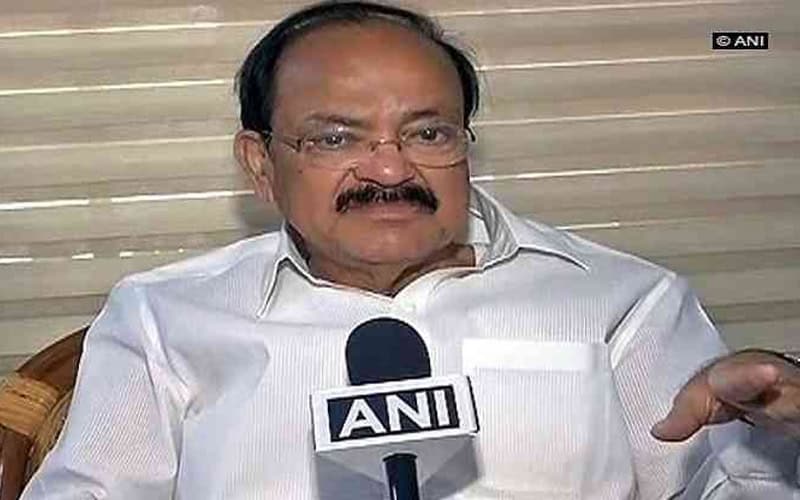New Delhi [India]: Vice President M Venkaiah Naidu on Monday called for a re-look into the way students are trained in colleges and schools, and said there is need to move away from textbook knowledge and instead, focus on open debates.
Addressing the gathering at the 55th Annual Prize Distribution Ceremony of Shyam Lal College, the Vice President said, “There is a need to move away from textbook knowledge, rigid ideas and examination marks and to focus on well informed, open debates.”
He asked centres of higher education to replace long hours of lectures with newer teaching methods such as using case studies, problem-solving techniques and role-playing, to improve employability.
Terming acquisition of employable skills and knowledge as tools to succeed in the modern day, Naidu urged institutions of higher education to develop an industry focus and encourage students to take up live projects, internships and enable them to constantly interact with industry and corporate bodies.
Expressing concern over the poor global ranking of Indian institutions, the Vice President said, “Our quest for excellence in education would remain unfulfilled if we fail to achieve international standards in higher education.”
Talking about India’s demographic dividend, Naidu stressed on the need to educate the burgeoning youth population and equip them with employable skills to harness the power of India’s youth and make the country a global leader.
Emphasising that neglecting education would adversely impact the growth of the nation as a whole, the Vice President said that there was an urgent and imminent need to re-think and re-engineer the entire education system.
Naidu stressed upon the need to fundamentally re-cast the education system, institutions, pedagogy, teaching and learning methods and said that a beginning must be made from primary education.
He also suggested increasing investment in education from the current 3 per cent of GDP to at least 6 per cent by 2022, as recommended by the NITI Aayog.
The Vice President also said he wants institutions, especially schools in rural areas, to not only ensure 100 per cent enrolment but also make sure that all children learn at a high level of proficiency and ensure that no child is left behind.
[source_without_link]ANI[/source_without_link]

